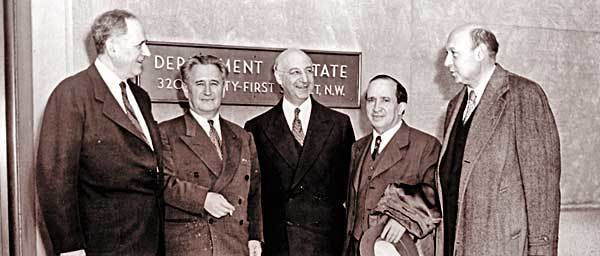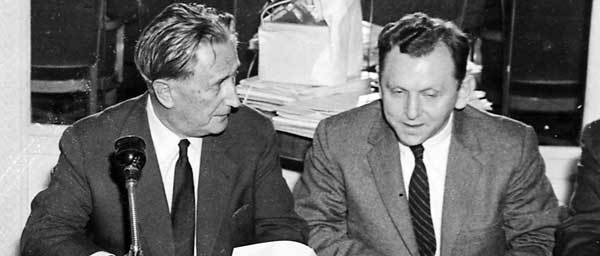Legacy of the Refugee Research Program
During the twelve years that the Nazi Party was in power, the American Academy for Jewish Research worked as hard as possible to preserve European Jewish life and European Jewish scholarship. Despite an array of challenges, AAJR leaders labored continuously to facilitate the emigration of as many fellow scholars as they could. Even when threatening conditions in Europe, an increasingly complex American visa-granting system, and continual difficulties securing funds for prospective fellows made assisting their peers across the Atlantic nearly impossible, AAJR fellows and Executive Committee members in the United States leveraged their personal connections, their professional networks, and their own pocketbooks to aid European scholars.
After the war ended, the American Academy for Jewish Research did not abandon the victims of Nazism. In 1955 they entered in what would become a two-decade relationship with the Conference on Jewish Materials Claims Against Germany. The Claims Conference, which originated in 1951, worked with the West German government to address issues related to material damages and claims of Jewish victims of the Holocaust. AAJR received funding to use in support of research undertaken by victims of Nazism and for projects related to the rebuilding of European Jewish life. Projects included identifying works of Jewish scholarship and religion that needed republishing, a cataloguing project of German Jewish periodicals in the modern period, a republication of the rare and fragmented text Sefer ha-Ittur, and others.
Beginning in 1933 and long into the post-war period, AAJR fellows were animated by a tenacious commitment to Jewish scholarship and Jewish scholars as they sought to rescue and find employment for threatened European colleagues, despite the mounting obstacles they faced. This endeavor, however tragically limited the results, remains a compelling example of humanitarian action and constitutes an essential part of AAJR history.

